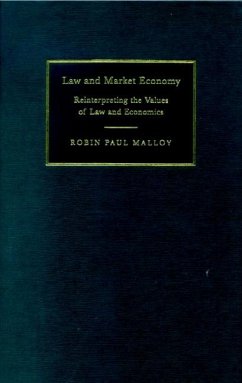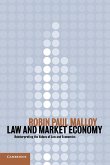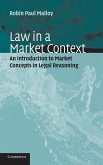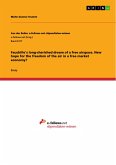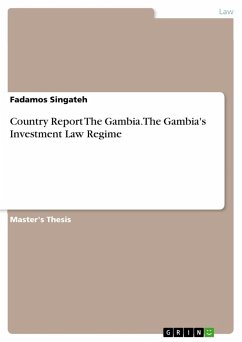This integrated study of law, economics and Peircian semiotics re-examines the relationship between law and market theory, and introduces the idea of law and market economy. Overcoming the traditional dichotomy between efficiency and justice, Malloy focuses on the relationship between creativity, entrepreneurism, and sustainable wealth formation. he shows how creativity and sustainable wealth formation have more to do with an ethic of social responsibility than with a concern for economic efficiency. In presenting his case, Malloy uses numerous examples as he reinterprets classic problems related to rational choice, the Coase Theorem, public choice, efficient breach, social contract theory, and wealth maximization, among others.
Table of contents:
1. Introduction; 2. A general framework; A basic introduction to semiotics; A brief overview of the general argument; 3. Law and market economy: further clarification; Market as community; Market as a process of semiotic signification; 4. Wealth as a process of discovery (wealth, discovery, and imaginative choice); Coase's theorem; Public choice; 5. Social organization and the discovery process; The relationship between social organization and proactive wealth formation; An ethic of social responsibility for law and market economy; Outlining an ethic of social responsibility (humility, diversity, reciprocity); The ethic of social responsibility and wealth: some supportive evidence; 6. Implications of law and market economy; Efficiency does not maximize wealth; An extensive distribution promotes wealth; Rhetorical strategies have consequence; 7. Conclusions.
This synthesis of law, philosophy and market theory provides a new jurisprudence of exchange. It presents a fundamental critique of the traditional economic analysis of law and an alternative approach through semiotic analysis, examining the market exchange process through the broader perspective of creativity and human relationships.
Law, market theory and semiotics together provide a challenging new perspective on economic analysis of law.
Table of contents:
1. Introduction; 2. A general framework; A basic introduction to semiotics; A brief overview of the general argument; 3. Law and market economy: further clarification; Market as community; Market as a process of semiotic signification; 4. Wealth as a process of discovery (wealth, discovery, and imaginative choice); Coase's theorem; Public choice; 5. Social organization and the discovery process; The relationship between social organization and proactive wealth formation; An ethic of social responsibility for law and market economy; Outlining an ethic of social responsibility (humility, diversity, reciprocity); The ethic of social responsibility and wealth: some supportive evidence; 6. Implications of law and market economy; Efficiency does not maximize wealth; An extensive distribution promotes wealth; Rhetorical strategies have consequence; 7. Conclusions.
This synthesis of law, philosophy and market theory provides a new jurisprudence of exchange. It presents a fundamental critique of the traditional economic analysis of law and an alternative approach through semiotic analysis, examining the market exchange process through the broader perspective of creativity and human relationships.
Law, market theory and semiotics together provide a challenging new perspective on economic analysis of law.

